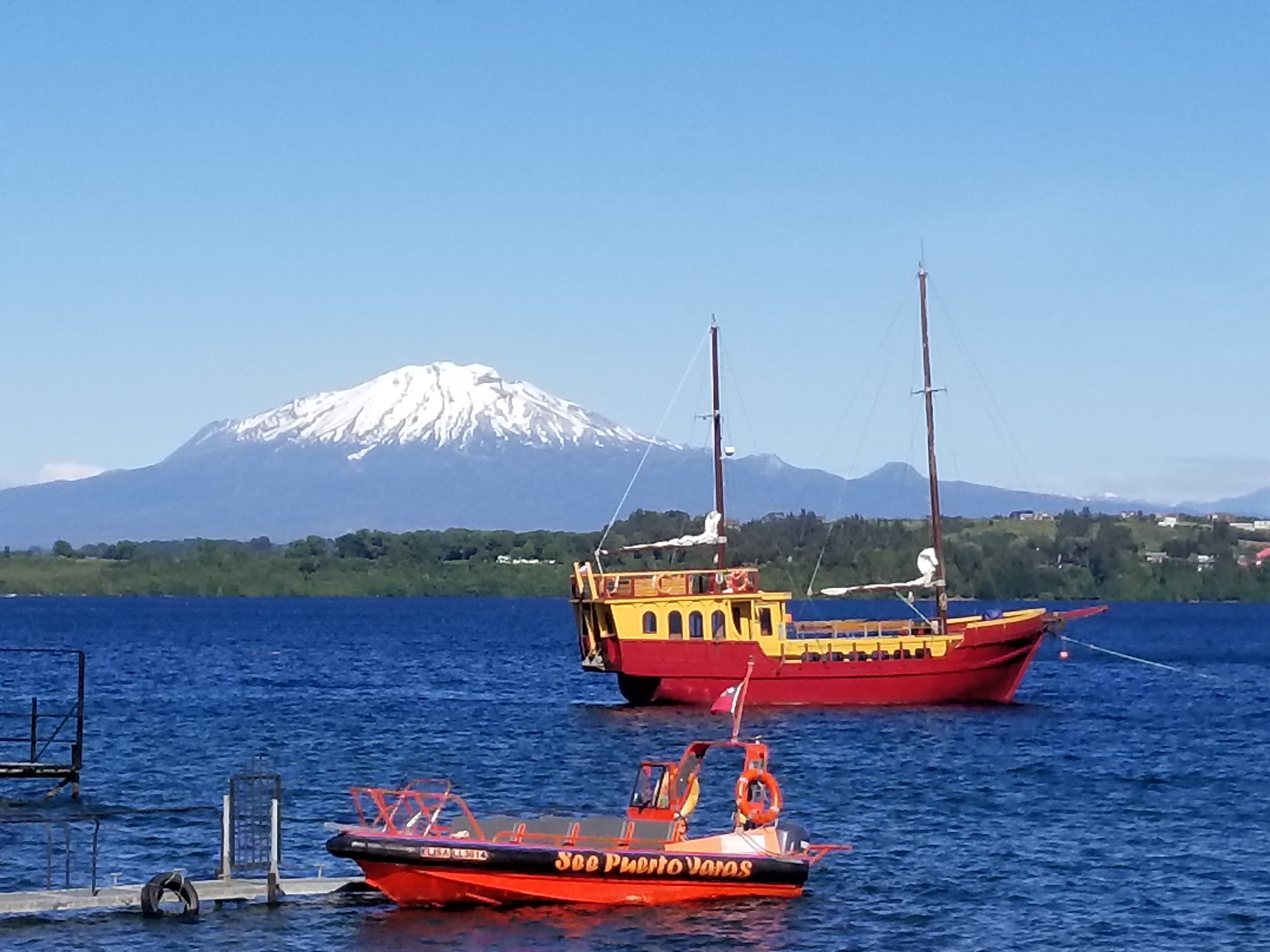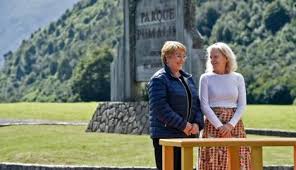Blaring horns and a cheering crowd greeted me when I arrived in the sleepy town of Puerto Varas, Chile on presidential election-day, December 2017. Sebastian Piñera, a billionaire businessman was elected for the second time by a population disappointed in job growth under Michelle Bachelet. Piñera’s victory marks the latest shift to the right in a region that until recently was largely governed by leftist leaders promising to build a more egalitarian society.

Bachelet—socialist, feminist, single mother, former political prisoner, torture survivor, and environmentalist—instituted social programs for the underprivileged. She also spearheaded Chile’s energy transformation to wind, solar, and volcanic energy, but her party was defeated because of lackluster economic growth. Piñera is promising to lighten restrictions on development and open the doors for extractive industries to exploit the riches of the long, thin country.
Under the leadership of Bachelet, Chile became the poster child for energy renewal systems. Instead of damming the mighty glacier-fed rivers that carve lush valleys through pristine forests, she pushed for solar power. During the presentation of his second documentary about the urgency of action on climate change “An Inconvenient Sequel”, former vice-president of the United States Al Gore drew attention to Chile as the country where the solar energy sector has shown the fastest growth. He commended the country for massive solar operations in the Atacama Desert encouraging other world powers, including the U.S, to follow their lead.
The gift of two million acres of private land to the Chilean government from Doug and Kristine Tompkins spurred the movement to protect wild lands in Patagonia. After decades of work procuring lands, building facilities, and fighting politicians who claimed their intentions were devious, they donated Park Pumalin just outside of Puerto Montt to the national park system. This dazzling region festooned with dozens of waterfalls spilling over jagged cliffs to foaming pools of turquoise water soothes the soul of the outdoor adventurer. In March 2017, under the influence of Bachelet, the country stepped up and designated an additional 11 million acres of federal lands in the Chilean Lake District to the ambitious “Route of the Parks”. This act promises to spare the last of the wilds in Chile from haphazard development and destruction from extractive industry.
The plan is to create a vast park network modeled after the United States’ Scenic Byways with country lanes following the contour of the land with many look-out points, a network of well-maintained trails, clean campgrounds with facilities that include cozy cabins for rent, and employees to maintain structures and provide information to visitors. Conservationists aim to restore lands that have been cleared for agriculture, and actively repopulate the Patagonia region with native animals.

My local guide explained that the presidential campaign polarized the right against the left. He is at odds with his own father who defended the traditional ‘jobs over the environment’ sentiment, while he cannot support a government that ignores science and does not have an eye to the future. Even though there is a 95% literacy rate in Chile only 2 million out of 19 million turned out for the vote. This leaves Chile in a precarious position with all the good done by the previous administration in jeopardy. However, my guide assured me that the lands given to the National Parks were designated by an act of congress and cannot be overturned by a stroke of the newly-elected president’s pen.
Chile is also the second largest producer of salmon, the world’s most consumed fish. More than 100 salmon farms lining the fjords in Chile are creating dead zones in the ocean floor. Mass use of toxic chemicals and antibiotics in overcrowded facilities are destroying the ocean’s ecosystem. Many of the fish farms are in areas declared national parks and preserves, and requests for 342 more concessions are in the works. The election of the pro-business president does not bode well for the health of the indigenous fishes and marine animals.
With any luck, I will go back and raft the rivers framed in snow-frosted mountains and hike the world-class trail system in what is one of the last great wilderness expanses left in the world. Thanks to the work of the Tompkins, Michelle Bachelet, and other caring human beings, it will be there regardless of the attitudes of future elected officials.
Note: Sadly, Doug Tompkins was in a fatal accident in 2015. Kristine Tompkins carries on with their mission of saving the wilderness from development.
Adventure travel writer, Linda Ballou, is the author of Lost Angel Walkabout-One Traveler’s Tales. Find a host of travel articles on her site www.LindaBallouauthor.com
Read Ethical Traveler's Reprint Policy.
